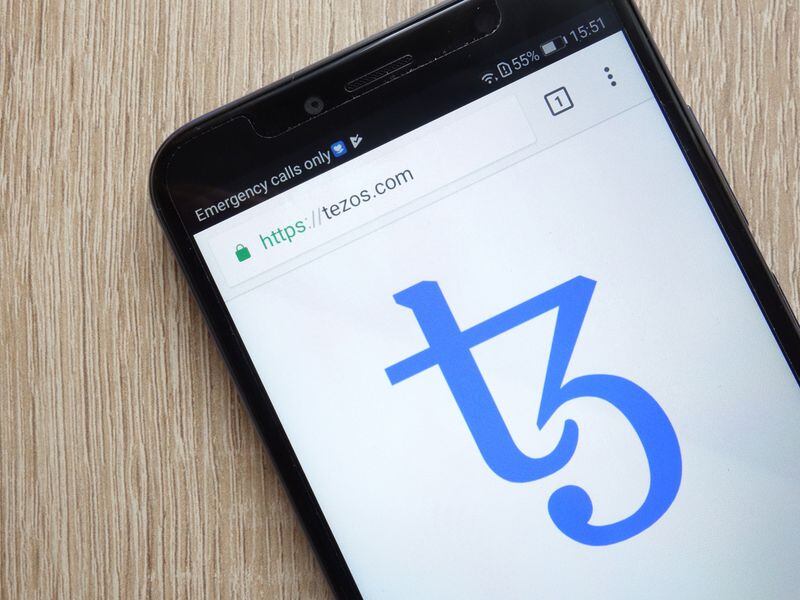Why Are Meme Coins Appealing to New Investors?
00:47Former Circle Analyst on Stablecoin and CBDCs02:04Bitcoin ETF Investors Bought the Dip; France Votes for Hung Parliament00:54Crypto Fear & Greed Index Drops to Low Point Following Plunge in Bitcoin01:53U.S. Adds 206K Jobs in June; Mt. Gox Begins Repayments in Bitcoin and Bitcoin CashTezos, the smart-contract blockchain founded by the husband-wife team of Arthur and Kathleen Breitman in 2017, will have its name on a new crypto payments debit card, created in association with Baanx, the digital assets card facilitator and partner of Mastercard.
Transactions involving the Tezos-branded, non-custodial crypto card will take place on Etherlink, an Ethereum-compatible layer-2 blockchain powered by Tezos Smart Rollups technology, to allow fast, cheap payments. The Tezos Foundation-backed debit card will be accepted by over 110 million global merchants compatible with Mastercard.
Crypto cards linked to non-custodial wallets – which allow customers to keep hold of their crypto until needed – are becoming popular. Matercard and Baanx are reportedly rolling out a MetaMask debit card, and DeFi firm 1Inch has one in operation. Baanx's relationship with Tezos is over four years old, and the Tezos Foundation has been included in previous Baanx funding rounds.
The Tezos Etherlink layer 2 offers sub-second transaction finality at around 500 milliseconds right now and will become faster in the coming months, said Siddharth Singhal, head of business development at Trilitech, a Tezos developer.
“We have built an on-chain, non custodial payment experience allowing users to spend their on-chain balance in a non-custodial fashion, as you would with any MasterCard,” Singhal said in an interview. “So, like Apple Pay, Google Pay, as well as real-life retail scenarios – wherever a debit card is acceptable.”
The rationale behind crypto cards includes being a replacement for online banking and helping people who are unbanked or underbanked, and also for the creator economy looking to build wallets that pay out to users, said Simon Jones, Baanx's chief commercial officer.
“As well as the roughly 1.2 billion people who don't have access to financial services, you have those who basically want to bin their bank, but need that real-world connectivity,” Jones said in an interview. “Another use would be for the creator economy, where you might be running a gaming wallet, say, and pay out to users, but don't want to hand back revenues to Apple. Why not go directly to the consumer?”
Edited by Sheldon Reback.
